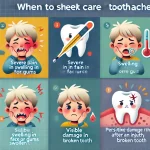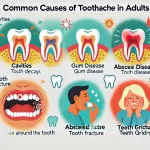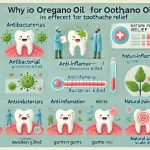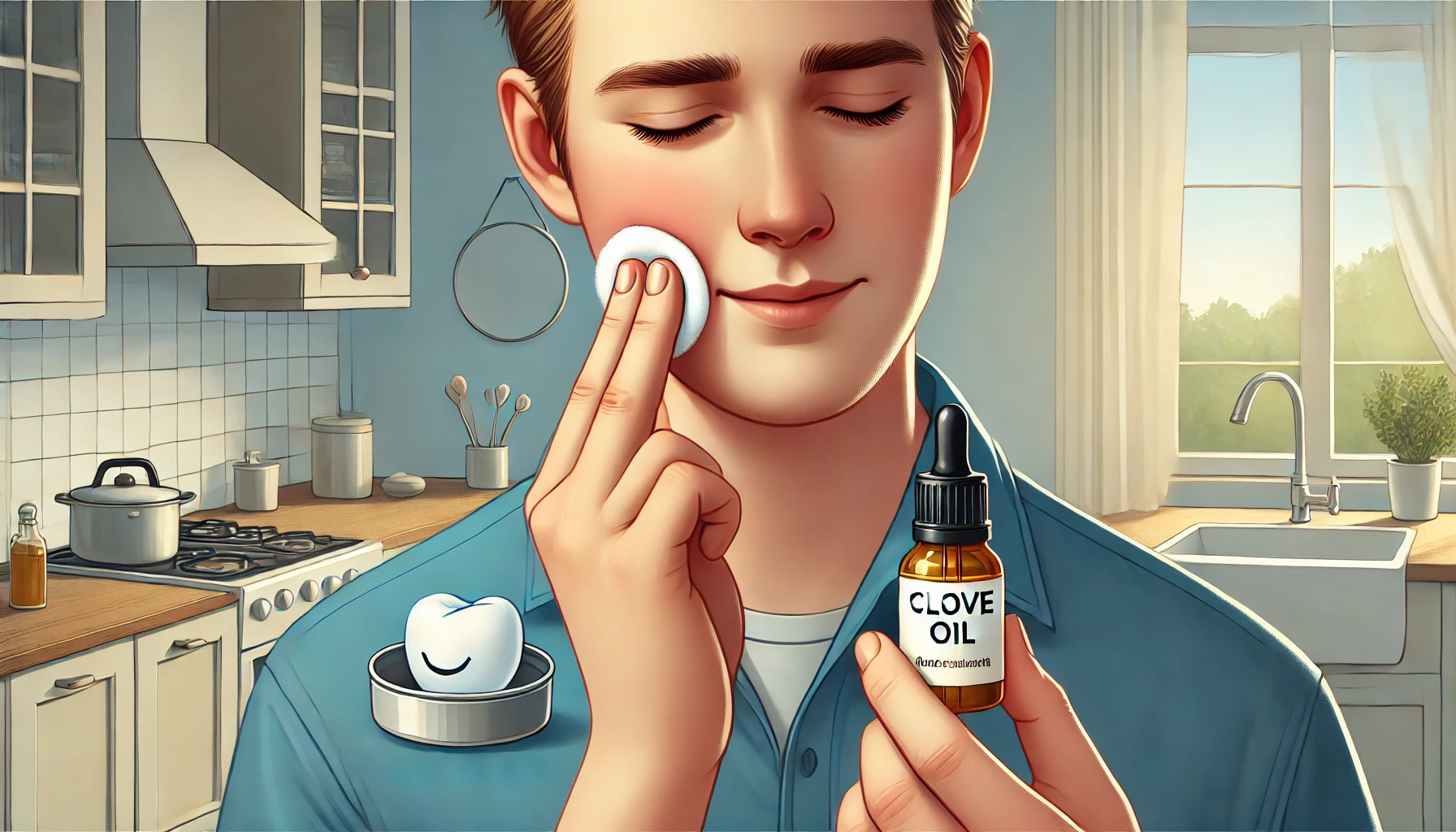
Let’s face it—nothing disrupts your day quite like a toothache. That sharp, throbbing pain can make even your favorite meal feel like a chore. While a dentist is the best person to fix the root cause, there are moments when you just need something to take the edge off, right? That’s where clove and alcohol step in. These old-school remedies have been trusted for ages, and they’re still a go-to option for quick, temporary relief. Ready to learn how they work? Let’s dive in.
Clove: Nature’s Gift to Soothe Tooth Pain
Clove might seem like just another spice sitting in your kitchen cabinet, but it’s a secret superhero when it comes to oral health. The magic ingredient here is eugenol, a natural compound that packs a punch with its pain-relieving and germ-fighting powers.
What Makes Clove So Effective?
- Pain Relief in a Pinch: Eugenol acts like a natural anesthetic, dulling the pain in no time.
- Say Goodbye to Swelling: Its anti-inflammatory properties are great for calming down irritated gums.
- Bye-Bye Bacteria: Clove’s antibacterial action helps keep nasty germs in check, which is essential when dealing with a toothache.
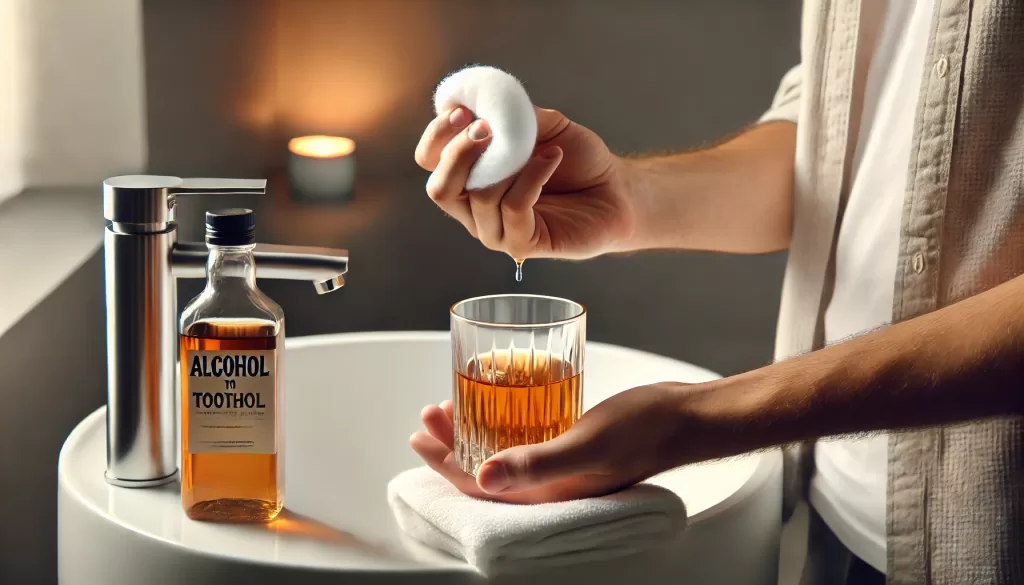
Clove and Alcohol for Toothache Relief
Easy Ways to Use Clove for Toothaches
- Clove Oil to the Rescue:
- Dab a cotton ball in clove oil (just a tiny amount is enough).
- Place it on the sore spot and hold it there for a few minutes.
- Rinse your mouth with water afterward.
- Whole Clove Hack:
- Pop a whole clove near the aching tooth.
- Gently chew on it to release the oils, then let it sit for about 10–15 minutes.
- Make Your Own Paste:
- Crush 2–3 cloves into a powder.
- Mix it with a drop or two of water to form a paste.
- Apply the paste to the painful area for quick relief.
Quick Tip: Clove oil is super potent, so don’t overdo it. Too much can cause a burning sensation or irritate your gums.
Alcohol: A Surprising Ally for Tooth Pain
When we talk about alcohol for toothaches, we don’t mean pouring yourself a drink (although some days, that doesn’t sound bad). Spirits like whiskey or vodka have been used for years to provide temporary relief from tooth pain. It’s not a cure, but it gets the job done when you’re in a pinch.
Why Alcohol Works
- Instant Numbing: Alcohol helps numb the area, making the pain more bearable.
- Kills Germs: Its antiseptic properties help fight off bacteria that could be making things worse.
- Reduces Swelling: Alcohol can calm inflamed gums when used properly.
How to Use Alcohol for Toothache Relief
- Quick Rinse:
- Take a small sip of strong alcohol (like whiskey or vodka).
- Swish it around the painful area for 20–30 seconds.
- Spit it out—this isn’t the time to swallow!
- Cotton Ball Method:
- Soak a cotton ball in alcohol.
- Place it on the aching tooth or gum for a few minutes to ease the pain.
Heads Up: Don’t use alcohol remedies for kids or if you’ve got open sores in your mouth—it can sting and might cause more harm than good.
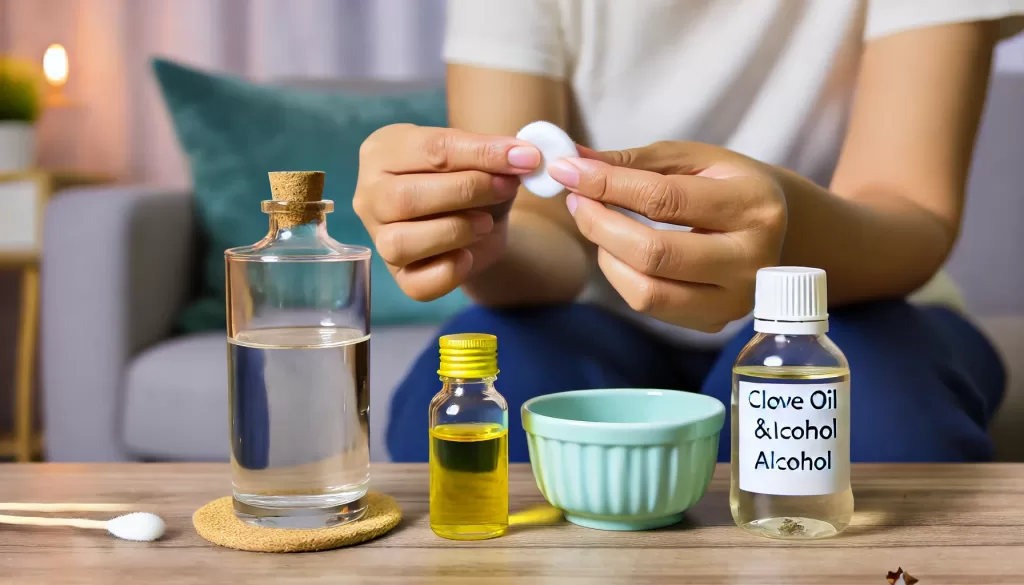
Clove and Alcohol for Toothache Relief
Combine Clove and Alcohol for Double the Relief
Why choose one when you can get the best of both worlds? Clove and alcohol together create a potent, dual-action remedy that can numb the pain and fight off bacteria at the same time.
How to Use Them Together
- Infused Alcohol Rinse:
- Let 2–3 whole cloves soak in a small amount of alcohol for about 10 minutes.
- Swish the mixture around the painful area, then spit it out and rinse with water.
- Cotton Ball Duo:
- Mix a drop or two of clove oil with alcohol.
- Soak a cotton ball in the blend and place it on the sore spot.
- DIY Mouthwash:
- Combine clove oil, alcohol, and water in a small container.
- Use it as a quick rinse when you need fast relief.
Just remember, this combo is a temporary fix. It’s always best to follow up with professional care to address the real issue.
Important Precautions to Keep in Mind
Natural remedies are awesome, but they’re not without their risks. Here’s what you should know:
- Don’t Overuse: Too much clove oil can irritate your gums, and overdoing alcohol can dry out your mouth.
- Check for Allergies: If it’s your first time using clove or alcohol, do a quick patch test to make sure you’re not allergic.
- It’s Temporary: These remedies won’t fix the root problem. Persistent pain means it’s time to see a dentist.
What If Clove and Alcohol Aren’t an Option?
No worries—there are plenty of other ways to tackle tooth pain at home:
- Saltwater Rinse: Mix a teaspoon of salt into warm water and swish it around your mouth. It’s simple, effective, and great for reducing swelling.
- Cold Compress: Wrap an ice pack in a cloth and hold it against your cheek near the painful area for 15 minutes. It’ll numb the pain and calm inflammation.
- Pain Relievers: Over-the-counter options like ibuprofen or acetaminophen can provide temporary relief.
When It’s Time to See the Dentist
Sometimes, home remedies just won’t cut it. If you’re dealing with any of the following, it’s time to call in the pros:
- Persistent Pain: If the pain doesn’t go away, there might be a deeper issue like an abscess or severe decay.
- Swelling or Fever: These could be signs of an infection that needs immediate attention.
- Difficulty Chewing or Speaking: This might indicate a more serious dental problem.
Long-Term Oral Care Tips
The best way to avoid future toothaches is to stay ahead of the game. Here’s how to keep your teeth happy and healthy:
- Brush and Floss Daily: Twice-a-day brushing and once-a-day flossing can do wonders for keeping cavities at bay.
- Regular Checkups: Don’t skip those dentist appointments—they help catch problems early.
- Eat Smarter: Cut down on sugary snacks and drinks. Instead, go for foods rich in calcium and vitamins.
- Fluoride Is Your Friend: Use fluoride toothpaste or mouthwash to strengthen your enamel and protect against decay.
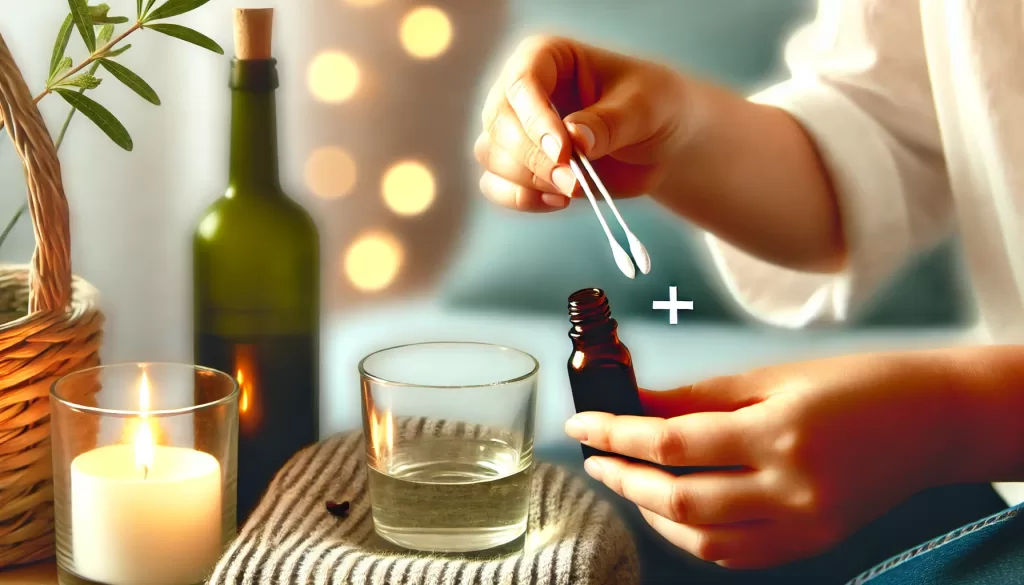
Clove and Alcohol for Toothache Relief
Wrapping It Up
Clove and alcohol are lifesavers when it comes to quick, temporary relief for tooth pain. They’re simple, effective, and easy to use. Just remember, they’re not a cure—they’re a band-aid. For lasting relief, you’ll need to visit your dentist. Until then, these remedies can help you manage the pain and keep you smiling.
FAQs
1. Can clove oil be used for children?
It’s best to avoid clove oil for kids unless directed by a dentist—it can be too strong for their sensitive gums.
2. Should I rinse with alcohol or swallow it?
Always spit it out. Alcohol in this case is for topical relief only.
3. How fast does clove oil work?
You’ll usually feel relief within a few minutes of application.
4. Can I store a clove-alcohol mixture for later?
Fresh is always better, but you can make a small batch to use within a day or two.
5. What if these remedies don’t work?
Persistent pain means it’s time to see a dentist—don’t delay.



